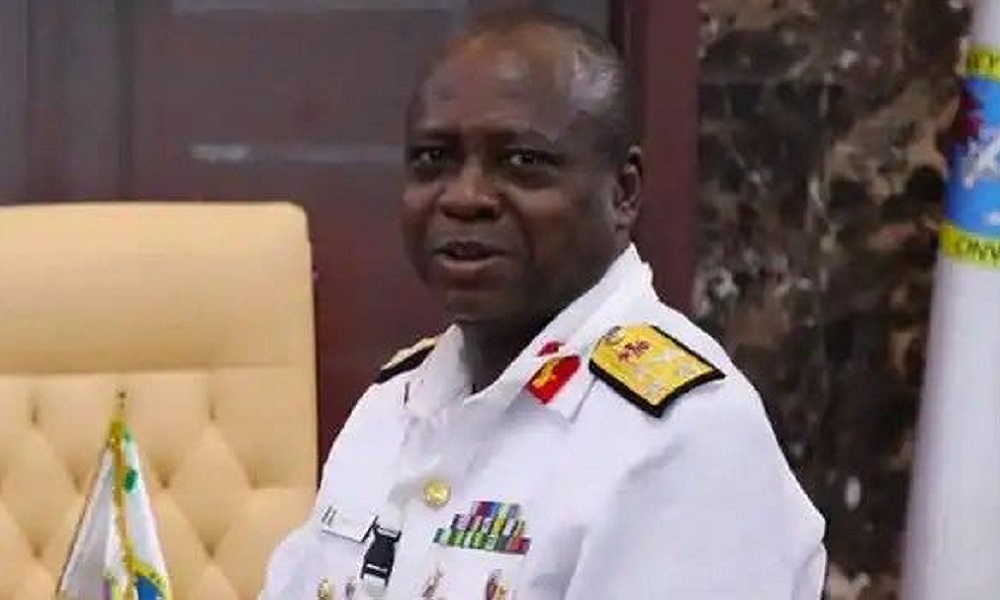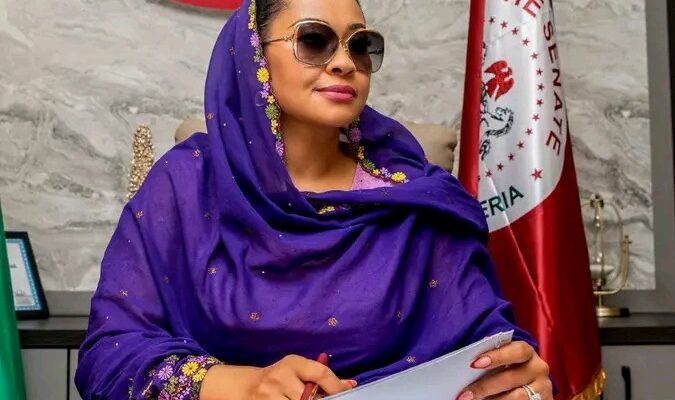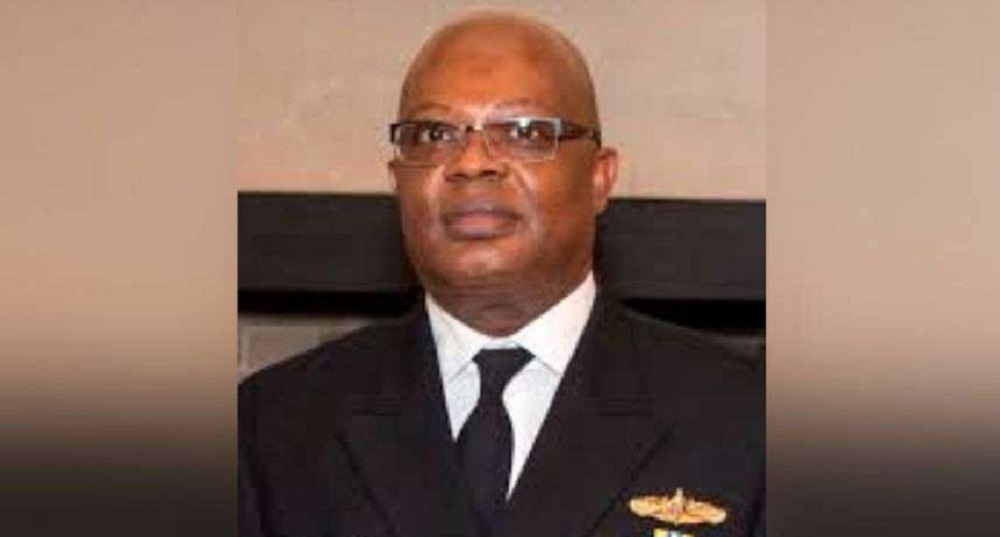News
4, 606 suspects arrested for maritime crimes – Chief of the Naval Staff

Chief of the Naval Staff, Vice Admiral Emmanuel Ogalla, on friday stated that limited community support makes maritime criminals emboldened, knowing that they may not be reported or caught in Nigeria
Despite this, the Naval Chief disclosed that about “4, 606 suspects have been arrested for various maritime crimes between 2015 and 2024” adding that the arrests were carried out “in the communities within the riverine areas”.
Vice Admiral Ogalla stated this while presenting the 3rd Distinguished personality lecture at Institute for Peace and Strategic Studies (IPSS), University of Ibadan on the lecture “Role of the Nigerian Navy in Combatting Maritime Crimes for enhanced Blue Economy in Nigeria”
While saying that the Navy has demonstrated a strong commitment to ensuring a secure environment necessary for the development for the blue economy, the Chief of the Naval Staff disclosed that the Navy is already pushing for the power to prosecute offenders in the core areas of its mandates.
According to him, “some community leaders justify the criminal behaviour of these criminals. This complicates maritime law enforcement efforts and poses a significant challenge to maritime security. it also underscores the urgent need for comprehensive, society-wide solutions to address root causes of maritime criminality, which threatens the successful exploitation of Blue economy potentials in Nigeria”
He then called for the establishment of special courts dedicated to maritime crimes to ensure effective and efficient justice delivery, ultimately resulting in better outcomes for law enforcement.
“The speedy prosecution of maritime crimes will improve data collection and analysis which are crucial for policy and legislative formulation in combating maritime crimes, for the development of the blue economy.”
While noting that transportation along the waterways generates approximately $1.2billion, the Naval Chief however noted that the evolving “dynamics of maritime crimes could negatively affect the prospects, hence the need for pragmatic solutions to address the threats”
While listing non-diligent prosecution of maritime crimes as one of the challenges facing the navy in combating maritime crimes, Vice Admiral Ogalla stated that “the Nigerian Navy and other law enforcement agencies have made commendable efforts in arrest and prosecution of maritime offenders. However, inadequacies such as prolonged trial periods are being exploited by criminals.
This has led to protracted litigation and several abandoned vessels across Nigerian Navy Bases. Between 2015 to date, 250 vessels arrested were handed over to prosecuting agencies, yet only 82 have been successfully prosecuted, leaving a balance of 168 still in Nigerian Navy custody In the last six years, the Nigerian Navy has lost a significant number of cases for non-diligent prosecution of maritime suspects by these prosecuting agencies.
Likewise, over N450 million for legal services are provided for these private lawyers at the expense of essential infrastructure for the service to combat the maritime crimes”.
“These waterways provide vital access to 28 of Nigeria’s 36 states and connect 6 neighbouring countries. Nigeria’s maritime domain also has the most fertile hydrocarbon provinces in the world, underscoring its strategic importance”
In its welcome address, the Vice Chancellor, University of Ibadan Professor Kayode Adebowale represented by the Deputy Vice Chancellor Administration, Professor Peter Olapegba stated that “a secure maritime domain is essential for the protection of our territorial integrity, the safeguarding of our economic interests, and the well-being of the millions of Nigerians who depend on the sea for their livelihoods.
As strategic hub for knowledge creation and re-creation in cognate areas of peace, security and humanitarian studies, we are particularly concerned about the rise in maritime threats, including, oil theft, illegal fishing, trafficking of drugs and weapons and piracy in particular. These illicit activities not only undermine our national security but also command potential to stifle economic growth and development along our coasts”
The director, Institute for Peace and Strategic Studies, Professor Ruth Adio-Moses maintained that the significance of “maritime security cannot be overstated, especially for a nation like ours blessed with a vast coastline and abundant maritime resources adding that the Chief of the Naval Staff was invited as part of the ongoing town-gown synergy towards proffering solutions to the myriads of problems facing the maritime space.”
News
INEC ought to have archived recall petition long ago-Senator Natasha

Senator Natasha Akpoti-Uduaghan on Thursday hailed the Independent National Electoral Commission (INEC) for rejecting a petition to recall her as the lawmaker representing Kogi Central Senatorial District.
The lawmaker, who was a guest on Channels Television’s Politics Today, said the electoral umpire should have thrown out the petition long before it did on April 3, 2025.
“I’m a lawyer. I’m a senator and I understand how Nigeria works. For me, the most important thing is this recall process has been stalled.
“I give kudos and credit to INEC even though I believe they should have thrown it away from the get-go.
“I think it was void ab initio because there is no law in the Electoral Act that says a petition should be discarded just because there is no address but again, what if the address is false?”
The Peoples Democratic Party (PDP) chieftain argued that most of the addresses provided in the petition for her recall were false because most houses in her district weren’t labelled.
Even though INEC did count 208,000 signatures, I bet you if they had gone into the verification stage, they would have struggled to even have 500 people come out to attest to signing that,” she added.
News
We’re putting together new 2025 Budget for Rivers-Ibas

…hosts Delegation Of Rivers NASS Caucus
The Administrator of Rivers State, Vice Admiral (Rtd) Ibok Ete Ekwe Ibas, has said that an appropriation bill for 2025 is being articulated to provide for critical development concerns in healthcare delivery, education, agriculture and infrastructure.
Vice Admiral (Rtd) Ibas also said that the anticipated budget will cater to creating more employment opportunities for Rivers people and advance delivery of technology in critical facets of public life.
The administrator gave the hint when he hosted the delegation of Rivers State caucus at the National Assembly, led by Dr Barinada Mpigi, the Senator representing Rivers South-East District, at Government House in Port Harcourt on Thursday.
Those on the delegation included Senator Allwell Onyesoh, the minority leader of the House of Representatives, Rep. Kingsley Chinda, Hon Dumnamene Dekor, Hon Solomon Bob, Hon Cyril Godwin Hart,
Hon Blessing Amadi, Hon. Felix Nwaeke, Hon Kelechi Nwogu, and Hon Victor Obuzor
Ibas said he has been resolute, since assumption of office, to restore law and order, and with support from the security agencies, an environment has been created where Rivers residents feel valued and safer.
The Administrator stated that the commitment is to make Rivers a model of peace in the comity of States, with a stable economy and citizens courageous to pursue their livelihood without fear or molestation.
“In addition to our peace building efforts, we are also focused on the economic stability and development of Rivers State.
“Since the Supreme Court verdict on the state’s budget, we have acted swiftly and decided to put together a new budget that reflects our commitment to healthcare, education, social services, and continued infrastructural development.
“We have worked diligently to ensure that the process is transparent, inclusive, and most importantly expedited. Our goal is to ensure that we do not lose any more time in making the necessary investments that will improve the lives of citizens.”
Vice Admiral (Rtd) Ibas stated: “The budget which is been finalized focuses on creating job opportunities and investing in key sectors such as agriculture, infrastructure, and technology.
“We understand the urgency of this initiative, and we are committed to ensuring that they are implemented without delay.”
The Administrator noted that to get the task done, the support of the legislators will be required as key representatives of Rivers State in the National Assembly.
He sued for their assistance in securing the necessary resources and legislative backing that would bring the initiative of his administration to fruition.
“Your partnership is critical to success in ensuring that Rivers State remains on the path of progress and enduring peace for future generations.”
He explained that in the face of the challenges that beset Rivers, which led to the State of emergency declared by President Bola Tinubu, dialogue, community engagement and reconciliation were deplored to build trust among the citizenry.
He noted that the people of Rivers State have shown incredible resilience and patience in the efforts taken so far to restore the State back to the path of peace and respect for the law.
Vice Admiral (Rtd) Ibas assured that his administration remains committed to achieving enduring peace for the state.
He said: “Beyond security, we have prioritised community engagements as a central part of our strategy. Dialogue, reconciliation, and inclusivity have been key to building trust among our people.
“We are determined to strengthen the bond of unity in Rivers State and to foster an environment where every citizen feels valued, heard, and respected. Together, we are making strides in ensuring that peace becomes a permanent feature of our state.”
Responding, Senator Barinada Mpigi, representing Rivers South-East District, said they are dedicated representatives of Rivers people at the National Assembly and resolved to support all efforts that will bring development to the State.
While commending the administrator for the modest successes he had achieved so far, Senator Mpigi pledged the support and cooperation of the legislators to ensure the return of the state on the path of law and order.
News
Just in: Shettima jets out to attend Senegal’s independence

Vice President Kashim Shettima has departed Abuja for Dakar, Senegal for official assignment.
The VP is expected to represent President Bola Ahmed Tinubu at the West African nation’s 65th Independence Anniversary celebrations.
Senegal marks its Independence Day on April 4 each year, commemorating its liberation from French colonial rule in 1960.
The annual celebration is a significant event featuring national parades, cultural displays, and ceremonies highlighting the country’s achievements and unity.
A statement issued on Thursday by Senior Special Assistant to the President on Media and Communications, Office of the Vice President, Stanley Nkwocha, said Shettima’s participation followed an official invitation from Senegalese President, Bassirou Diomaye Faye.
This underscored the strong diplomatic and economic ties between Nigeria and Senegal.
The two nations share longstanding relations, particularly within the Economic Community of West African States (ECOWAS), fostering cooperation on regional security, trade, and development initiatives.
The event is expected to reaffirm Senegal’s commitment to democratic governance and regional cooperation.
Vice President Shettima is scheduled to return to Nigeria immediately after the one-day celebrations, continuing his engagements in national development and diplomatic outreach.
-

 News11 hours ago
News11 hours agoNatasha: Kogi PDP hammers Ododo, reiterates unfeigned support for her
-

 Economy10 hours ago
Economy10 hours agoSEE Black Market Dollar To Naira Exchange Rate Today 3rd April 2025
-

 News18 hours ago
News18 hours agoRivers APC demands Fubara’s probe over ex-HoS allegations
-

 News6 hours ago
News6 hours agoJust in: “Ignore rumour mongers, there was no time I collapsed “-Wike asserts
-

 News6 hours ago
News6 hours agoCJ transfers Natasha’s case to Justice Nyako
-

 News9 hours ago
News9 hours agoJust in: INEC dumps recall petition against Sen Natasha
-

 Economy18 hours ago
Economy18 hours agoNaira rebounces against the dollar in parallel market
-

 News14 hours ago
News14 hours agoJust in: Finally, Trump imposes 14% tarriff on Nigeria oil, others





